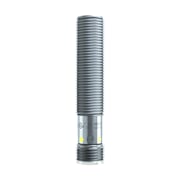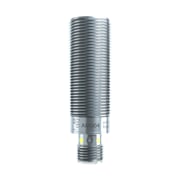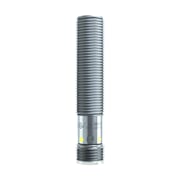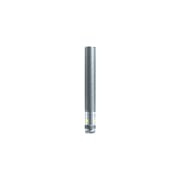Magnetic sensors
Magnetic sensors are ideally suited for detecting the presence of magnets and ferromagnetic objects. They are often smaller in size and offer greater sensing ranges than inductive sensors. They operate wear-free and without contact and can also be used in fast processes. Read more here
Magnetic sensors
All items of the category Magnetic sensors:
Magnetic sensors
Magnetic sensors are used in control technology for contactless and wear-free position detection. They come into their own in applications where inductive sensors have reached their limits of capability. The advantage: Magnetic sensors have a high sensing range with a small size. Depending on the alignment of the magnetic-field, the damping can be frontal or lateral.
Advantages of magnetic sensors
Magnetic sensors detect magnetic fields through various materials such as plastic, wood and even non-magnetic metals such as non-ferrous metals, aluminium and stainless steel. They have a small size, large sensing ranges and can measure small distances from a few millimetres to centimetres. Magnetic sensors are particularly robust and have long operational lifetimes. They have no moving parts, so they function wear-free, contactless and omnipolar (can detect both north and south poles). Magnetic sensors are insensitive to soiling and also work reliably in fast processes with switching frequencies up to 200 kHz.
The advantages of magnetic sensors at a glance:
- Reliable detection through various materials (e.g. wood, plastic, non-magnetic metals)
- Small size
- Large sensing ranges
- Long operating periods
- No moving parts
- Wear-free, contactless operation
- Omnipolar
- Insensitive to soiling
- Reliable even with fast processes (switching frequencies up to 5000Hz)
Application areas for magnetic sensors
In gate systems, for instance, magnetic sensors only register the magnets that are to be detected. Any influences that may be caused by aluminium nearby neither affect nor reduce the sensing range.
Magnetic sensors are often used in the foodstuffs industry in combination with pigs (cleaning devices that travel through pipes). The sensors make it possible to determine the exact location of the pig through the stainless steel pipe.
Also, magnetic sensors can be used together with a float with magnets for level monitoring.








